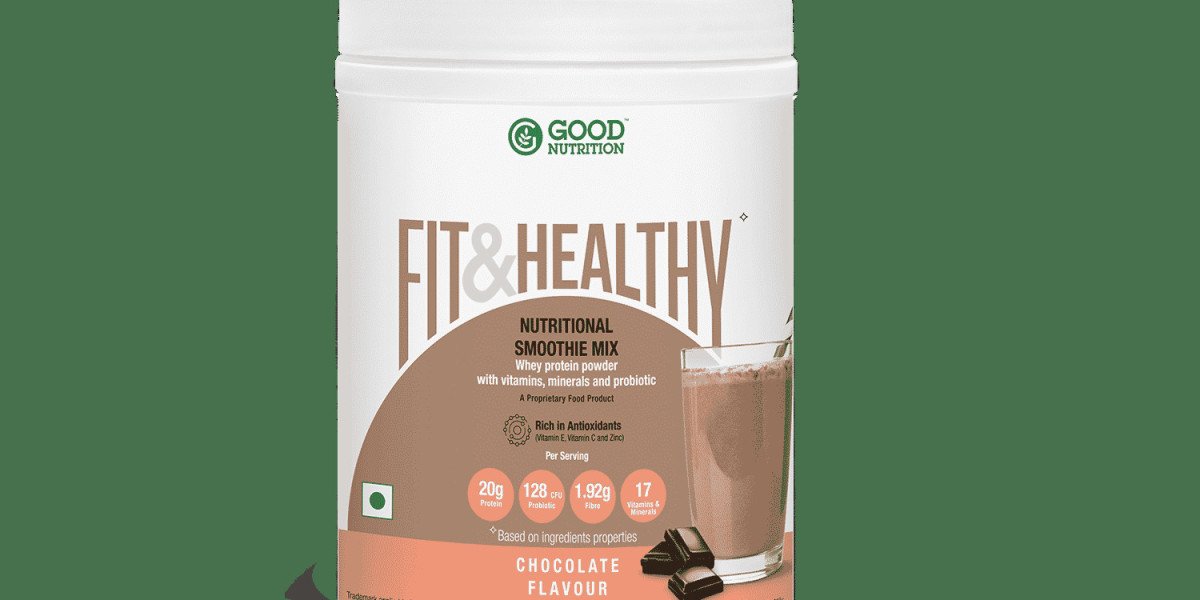As we age, maintaining muscle mass and overall health becomes increasingly important. For aging adults in India, incorporating whey protein into their diet can provide numerous benefits, from preserving muscle mass to enhancing recovery and overall well-being. This blog will explore how whey protein can benefit older adults and what considerations should be taken into account when incorporating it into their diet.
Understanding the Aging Process and Protein Needs
Aging is associated with several physiological changes, including a gradual loss of muscle mass and strength, known as sarcopenia. This condition can lead to frailty, decreased mobility, and a higher risk of falls and injuries. Ensuring adequate protein intake is crucial for mitigating these effects and promoting healthy aging.
Protein Requirements: The recommended dietary allowance (RDA) for protein in adults is approximately 0.8 grams per kilogram of body weight. However, research suggests that older adults may benefit from a higher intake, around 1.2 to 1.5 grams per kilogram of body weight, to support muscle maintenance and overall health.
Benefits of Whey Protein for Aging Adults
1. Preserving Muscle Mass
One of the primary benefits of whey protein for older adults is its ability to help preserve muscle mass. Whey protein is a complete protein, containing all essential amino acids, including a high concentration of leucine, which is particularly effective at stimulating muscle protein synthesis.
2. Enhancing Muscle Recovery
As we age, muscle recovery can slow down, making it more challenging to regain strength after physical activity. Whey protein’s fast absorption rate and rich amino acid profile make it an excellent choice for post-exercise recovery, helping to repair and rebuild muscle tissue efficiently.
3. Improving Bone Health
Protein plays a vital role in bone health, as it contributes to bone density and strength. Adequate protein intake, including whey protein, can help reduce the risk of osteoporosis and fractures, which are common concerns for aging adults.
4. Supporting Weight Management
Maintaining a healthy weight is crucial for aging adults to prevent chronic diseases such as diabetes and cardiovascular conditions. Whey protein can aid in weight management by promoting satiety, reducing appetite, and preserving lean muscle mass during weight loss.
5. Boosting Immune Function
Whey protein contains immunoglobulins and lactoferrin, which support the immune system. A robust immune system is essential for older adults to fend off infections and illnesses, promoting overall health and longevity.
6. Enhancing Nutritional Intake
Older adults may face challenges in consuming enough nutrients due to factors like decreased appetite, dental issues, or digestive problems. Whey protein provides a convenient and nutrient-dense option to help meet protein needs and support overall nutrition.
Considerations for Aging Adults in India
1. Lactose Intolerance
Many Indian adults are lactose intolerant, which can make consuming dairy products, including whey protein, challenging. Whey Protein Isolate (WPI), which contains little to no lactose, is a suitable option. Additionally, some brands offer lactose-free whey protein products specifically designed for those with lactose intolerance.
2. Cost and Accessibility
The cost of whey protein supplements can be a concern for many aging adults. To manage costs, consider purchasing whey protein in bulk or looking for deals online. It's also beneficial to combine whey protein with affordable protein sources like lentils, beans, and eggs to meet overall protein requirements.
3. Cultural Dietary Practices
Respecting traditional dietary habits is essential. In India, many people follow vegetarian or plant-based diets. While whey protein is derived from milk, there are plant-based protein alternatives available, such as pea protein or soy protein, which can be included in a vegetarian diet.
4. Quality and Authenticity
Ensure you purchase whey protein from reputable brands to avoid adulterated products. Look for third-party testing and certifications to guarantee the quality and safety of the product.
5. Consulting Healthcare Providers
Before incorporating whey protein into their diet, aging adults should consult with healthcare providers or nutritionists to ensure it aligns with their specific health needs and conditions. This is particularly important for individuals with kidney issues or other health concerns that may be affected by increased protein intake.
Practical Tips for Incorporating Whey Protein
1. Start with Small Amounts
If you’re new to whey protein, start with a small serving to see how your body reacts. Gradually increase the serving size as you become more comfortable with it.
2. Timing Your Intake
Post-Exercise: Consuming whey protein after physical activity can maximize muscle recovery and growth. Aim for 20-30 grams of whey protein within 30 minutes post-exercise.
Morning: Adding whey protein to your breakfast can help kickstart muscle protein synthesis after the overnight fast.
Between Meals: A whey protein shake can be a convenient snack to maintain a steady supply of amino acids throughout the day.
3. Incorporate Whey Protein into Meals
Smoothies: Blend whey protein with fruits, vegetables, and healthy fats like nuts or seeds for a nutritious shake.
Oatmeal: Add a scoop of whey protein to your morning oats for a protein-packed breakfast.
Yogurt: Mix whey protein into yogurt for a high-protein snack.
Homemade Protein Bars: Create your own protein bars using whey protein, oats, honey, and nuts for a portable snack.
4. Stay Hydrated
Proper hydration is crucial for protein metabolism and overall health. Drink plenty of water throughout the day, especially if you’re consuming higher amounts of protein.
5. Monitor Your Health
Keep track of how your body responds to whey protein. Monitor changes in muscle tone, energy levels, and overall well-being. Adjust your intake as needed based on your health and fitness goals.
Conclusion
Whey protein offers numerous benefits for aging adults, from preserving muscle mass and enhancing recovery to supporting immune function and weight management. For older adults in India, considering factors like lactose intolerance, cost, cultural dietary practices, and consulting healthcare providers is essential to optimize the use of whey protein.
By incorporating whey protein into their diet, aging adults can take proactive steps towards maintaining muscle health, improving overall nutrition, and enhancing their quality of life. As with any dietary change, it’s important to approach it with informed decisions and personalized considerations to ensure the best outcomes for health and well-being.








